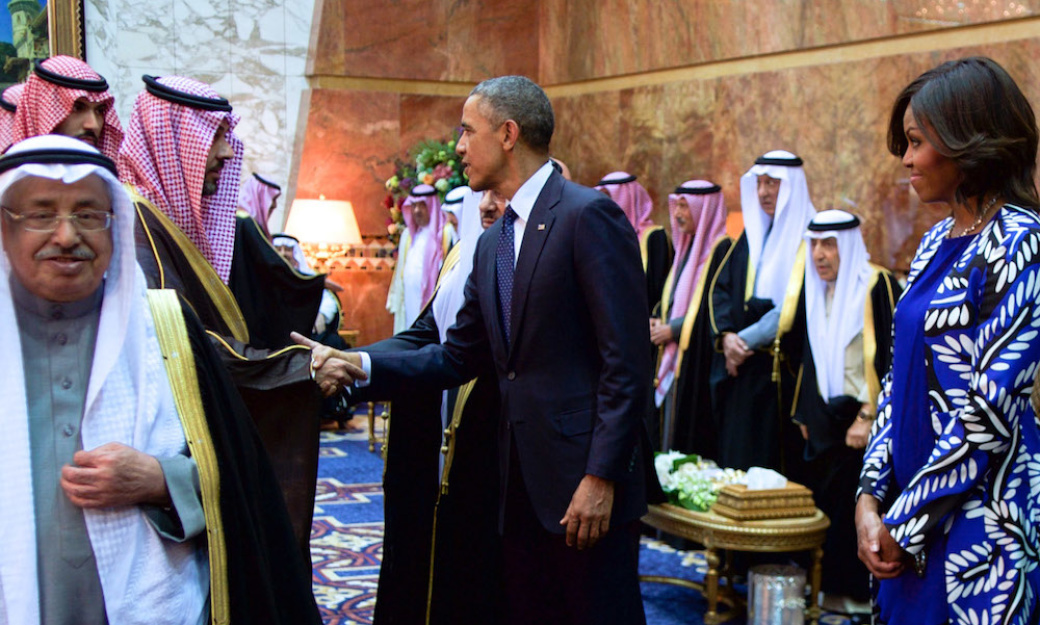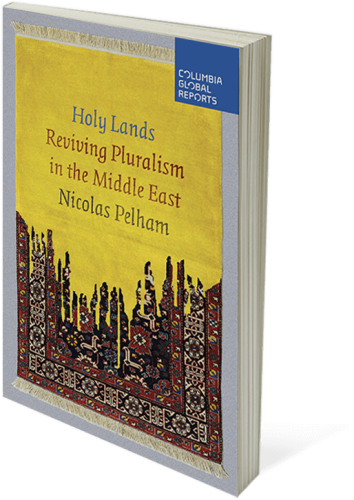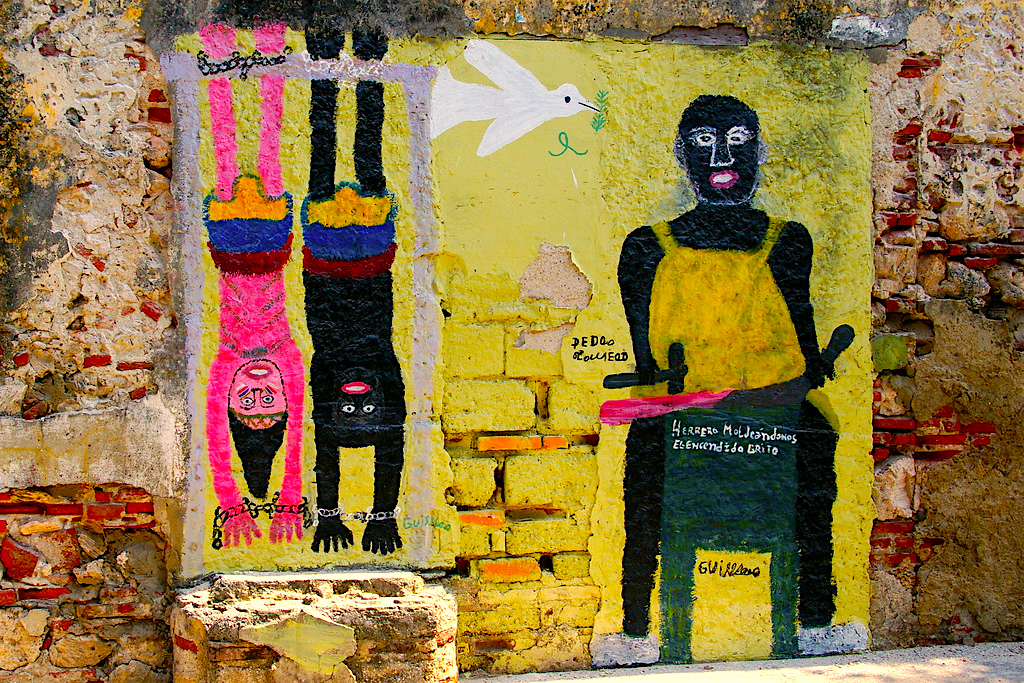Obama Can Nudge Saudis Toward Pluralism

When President Obama goes to Riyadh on Thursday, he should meet not just the Al Sauds, but the Saudis the rulers deem politic to hide under a bushel. If he does so, he will discover a country which defies the western stereotype of a bland killjoy state, and away from the religious police preserves as variegated a mix of sects and ethnicities as anywhere in the once cosmopolitan and pluralist Middle East.
 Obama would find pampered Salafi clerics, of course. He would see them debating modernity in their plush Riyadh villas, presiding over their pristine court rooms, writing pejorative textbooks in the Education Ministry and drawing up blasphemy charges against poets in the branches of their Committee of Commanding Good and Forbidding Wrong. But away from their prying eyes in the large country, he would also find Twelver Shiites, flying traditional flags and bunting in their villages next to the eastern oil fields. In contrast to the single-sex Wahhabi cemeteries with their flat anonymous graves, he would see women squatting at shrines lovingly decorated with flowers, photos and inscriptions. He might chance on the open-air processions Shia ostentatiously stage on saints’ days, or the hawza, the Shia seminary the Saudis reopened under the last king, or more warily the Nakhawila, the original Shia of Medina.
Obama would find pampered Salafi clerics, of course. He would see them debating modernity in their plush Riyadh villas, presiding over their pristine court rooms, writing pejorative textbooks in the Education Ministry and drawing up blasphemy charges against poets in the branches of their Committee of Commanding Good and Forbidding Wrong. But away from their prying eyes in the large country, he would also find Twelver Shiites, flying traditional flags and bunting in their villages next to the eastern oil fields. In contrast to the single-sex Wahhabi cemeteries with their flat anonymous graves, he would see women squatting at shrines lovingly decorated with flowers, photos and inscriptions. He might chance on the open-air processions Shia ostentatiously stage on saints’ days, or the hawza, the Shia seminary the Saudis reopened under the last king, or more warily the Nakhawila, the original Shia of Medina.
In adjoining alleyways, he might hear Sufi mystics in their homes reciting their zikr, or incantations, to the beat of the daf, or traditional drum. Further south he would meet Zaydi Shia in their wan-colored adobe houses beneath the shadow of Yemen’s mountains. He would find distinctly Bengali, Keralite and Filipino suburbs in Riyadh, as well as perhaps the region’s largest Christian community, left to pray albeit at home not in public. In Mecca, he might discover the kingdom’s largest expatriate city, home for all the strictures against non-Muslim access to many non-Muslim domestics and chauffeurs. If he visited King Saud University, he could find a Hebrew-reading Saudi prince preparing to teach the kingdom’s first undergraduate course in Jewish studies, and behind closed doors hear piercing critiques of Wahhabi doctrines. He would see a kingdom in a state of flux. He could go to cultural festivals, where interspersed with bursts of hip-hop, stand-up comedians perform open-air gigs to audiences of young men and women; beach-clubs where the requisite women’s bathing costume are bikinis not burqinis; and perhaps the region’s most flourishing arts scene in Jeddah.
Though they are loath to admit it, the Al Sauds have not rid the peninsula of its many sects and cultures, but rather preserved a diversity that elsewhere in region ravaged by religious wars is becoming a rarity. Whatever their antecedents, the Saudis are far from being Islamic State’s sister movement, as critics’ caricatures might have it.
That the kingdom has done this at a time when Shia and Sunni militias have turned the region’s heterogeneity into homogeneous single-sect enclaves is no small feat. After a century of colonial carve-up and withering Sunni power, the Middle East’s many sects and ethnicities are busy boxing themselves into ghettoes and challenging one another to war. Only by purging their lands of godless sects, their scripture-waving preachers in Mosul or hilltop Jewish settlements tell them, will they recover their mythical glory and holiness.
The claim is particularly hollow when set against the region’s past. From Islam’s inception until the collapse of the caliphate a century ago, the Middle East’s grandeur came from the ability of its leaders to shepherd, not prey on, the multiple talents of its many sects. The only reason the region is so teeming with indigenous ancient cults is because Sunni Islam, in contrast to European Christendom, protected them.
Few, if any, leaders in the region are as well placed as the Al Sauds to assume this inclusive mantle. In an Arab world off kilter, they retain a strong semblance of order. They run the region’s largest economy, and despite plummeting oil prices, they are best equipped to fund outreach. They are the custodians of Mecca, the spiritual dynamo for Muslims of all hues. And they have an energetic, calibrating young regent who aspires to fill the dearth of regional leadership.
In the short-term, Deputy Crown Prince Mohammed bin Salman has done the opposite. He has sought to legitimize his drive for power by indulging the ultra-conservatism of more obscurantist clerics, and prove his strength with muscle-flexing against deviants. He has let Wahhabi judges sentence poets to crucifixion, and, for the first time under Saudi rule, executed a Shia cleric. Across the region, he has waged a series of proxy—and in Yemen, direct—wars, bolstering allied Sunni militias against Shia ones.
In the longer term, however, he remains keenly aware that to survive, Saudi Arabia will need to realize the potential of all its citizens, regardless of sect or sex. To rejuvenate the kingdom, he will need to diversify not just the economy from dependence on a single revenue source, oil, but his power base, dominated by adherents of a single religious school, Wahhabism. He will need to embrace his kingdom’s multiple constituencies which now nervously shrink from his rule, and reach out to his highly-educated men and women many of whom are exploring their options for asylum abroad. He needs to show that having consolidated power as prime minister, defense minister and Aramco’s chief, he can now exercise it for the benefit of his diverse people.
An inclusive approach at home will help Prince Mohammed rebuild the influence he feels a series of comatose Saudi kings have forfeited. Regionally and internationally, he can project his reach far more effectively by embracing its diversity than by propping up allied sectarian militias and dispatching fighter-jets. There are several positive signs that he is already doing so. He has held direct ceasefire talks with the Houthis, the Yemeni Zaydi foes he has spent the last year bombing, reopened the Saudi embassy in Shia-ruled Baghdad for the first time since 2003, and cajoled his Sunni allies in Syria to join the Geneva process designed to secure a negotiated way out of Syria’s five-year civil war. He has invited an Iranian delegation to Riyadh to discuss compensation for the hundreds of Iranian pilgrims killed in the Mecca stampede last September. When Prince Mohammed reaches out beyond his immediate sect, other leaders might feel inspired to recover their own ruptured pluralism.
In Riyadh, Obama might offer a helping hand. Hectoring the Al Sauds with demands for secular democratic freedoms—a discourse steeped in misplaced western moral supremacy—will likely provoke a backlash. Better to recall the region’s homegrown traditions of pluralism, and appeal for a revival. He might offer to sponsor a meeting of Salafi and Shia scholars who once talked long into the night in each other’s homes until the fallout from Syria’s sectarian strife pried them apart. He might listen to Sheikh Salman al-Oadah, who despite his reputation as a jihadi firebrand wrote a book entitled How to Disagree. Ultimately, encouraging Sunnis to revive the inclusive faith that made Islam great will do more to roll back the jihadi world-view than any number of bombs.

